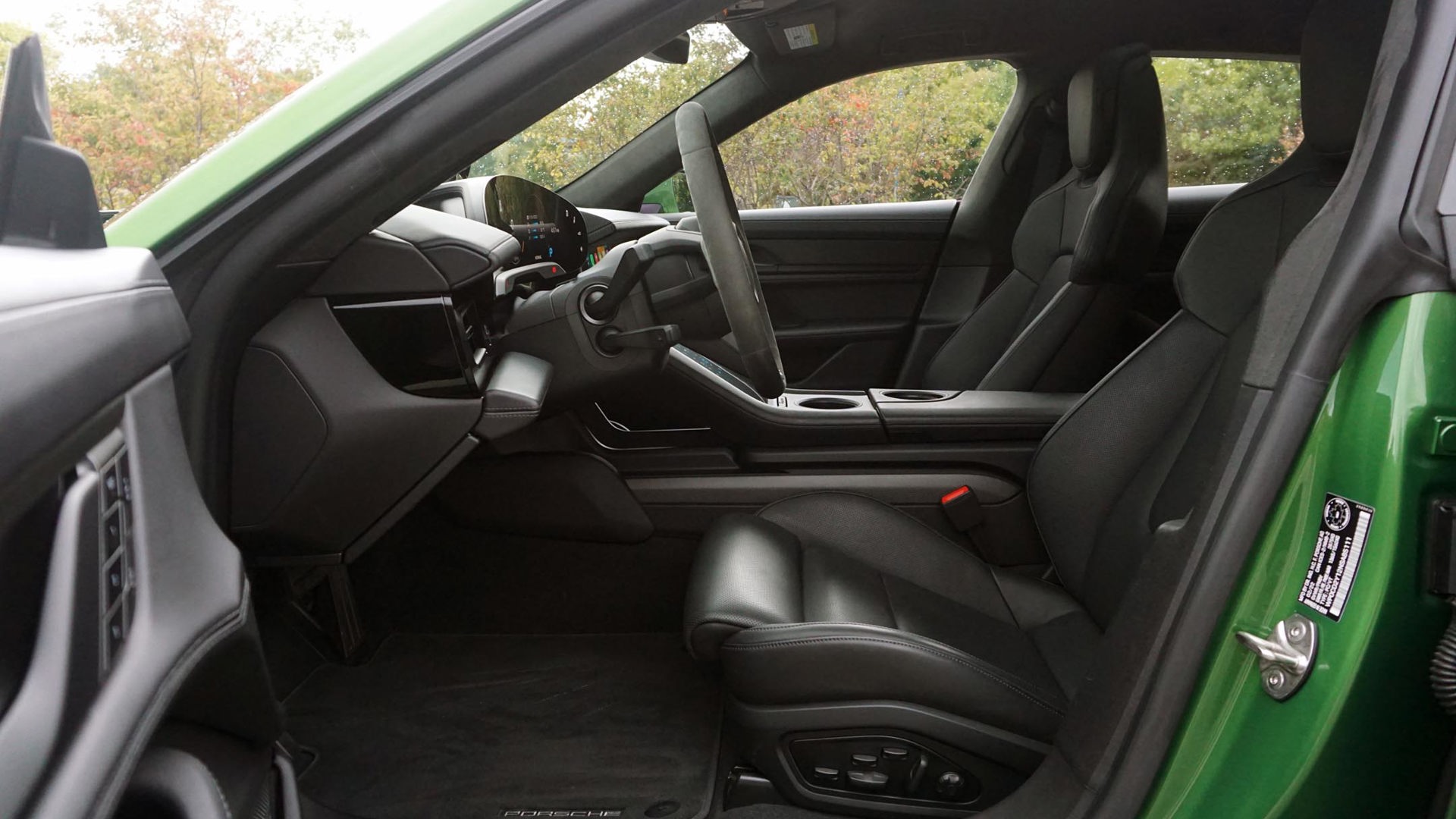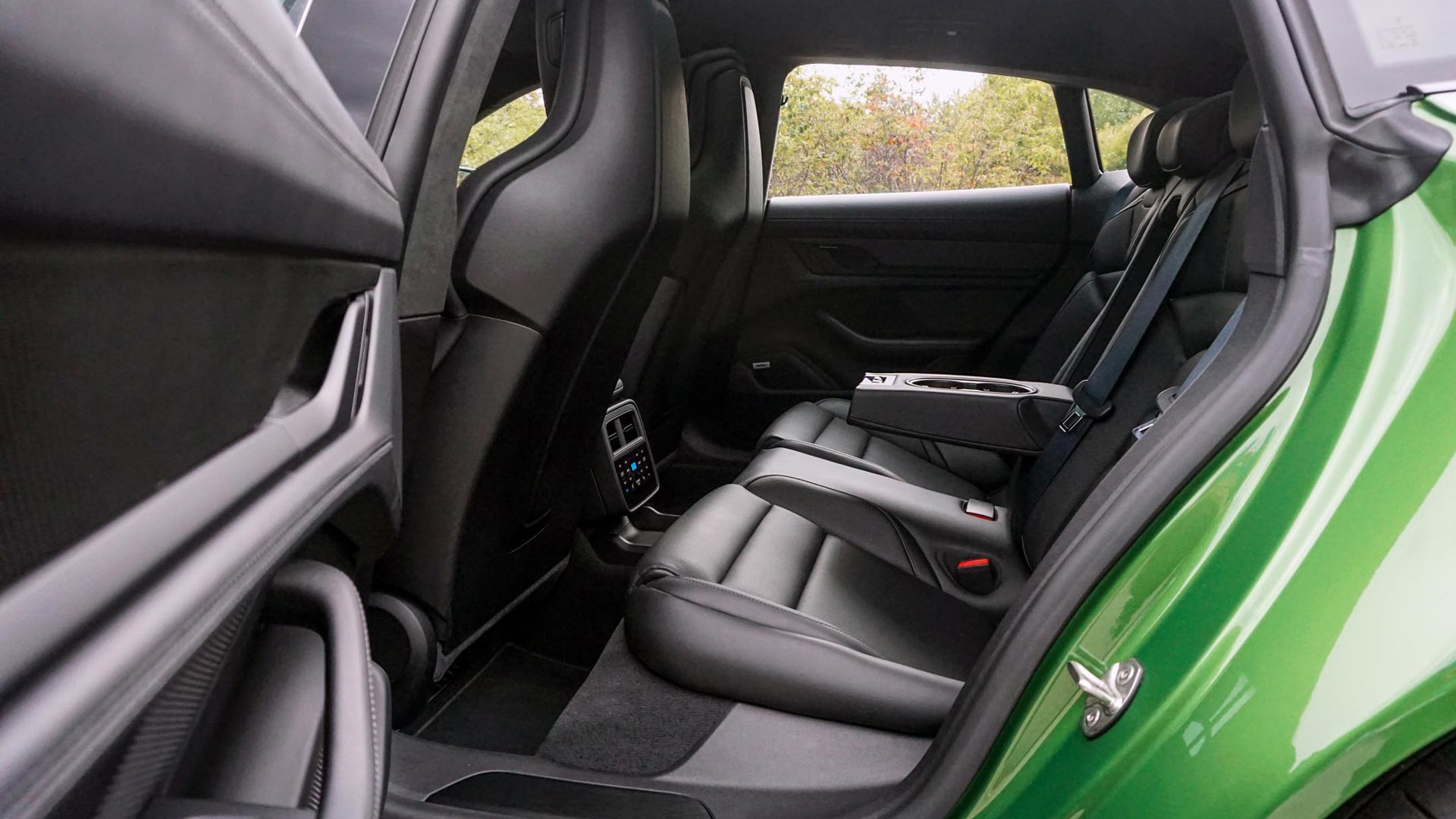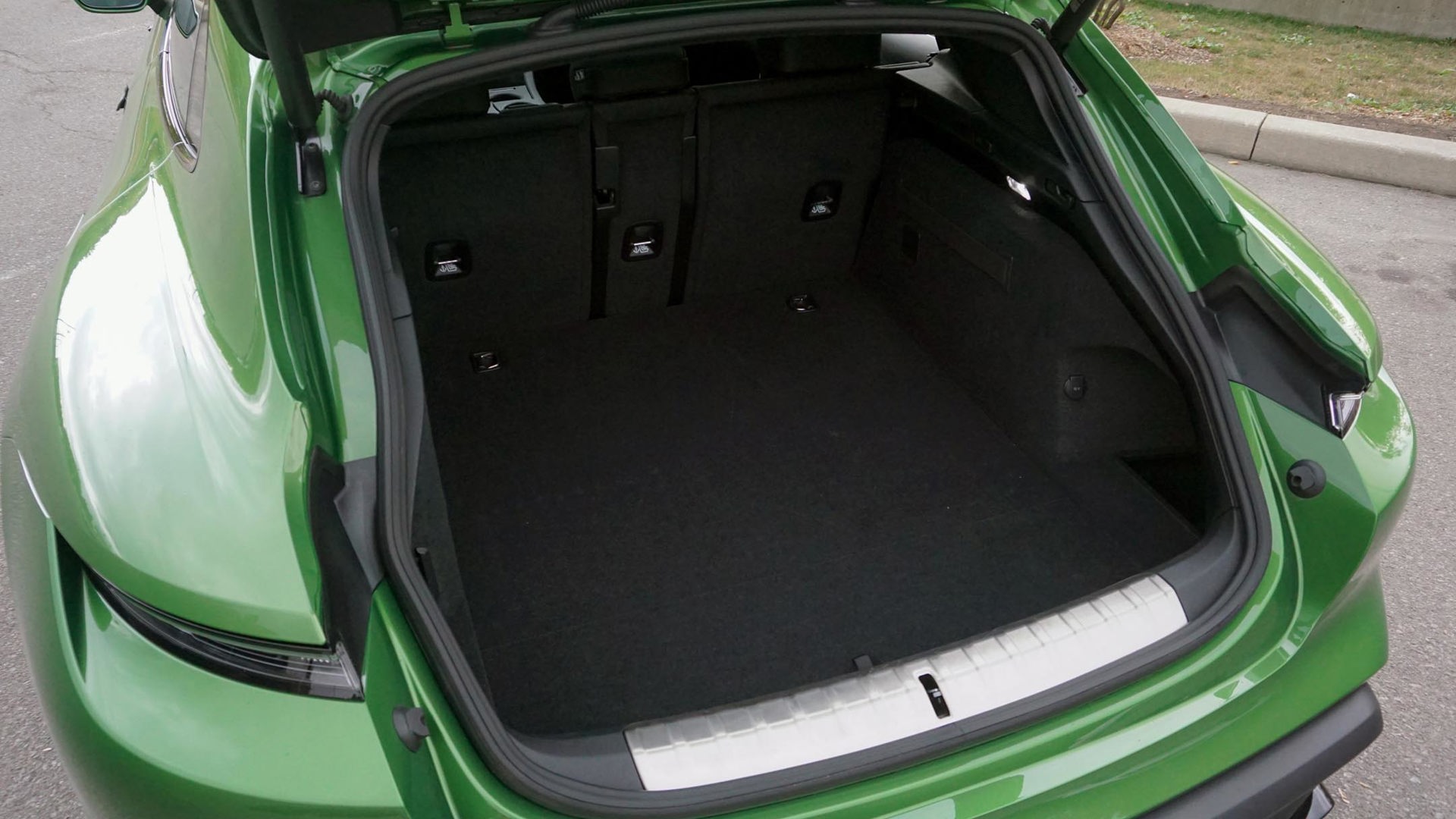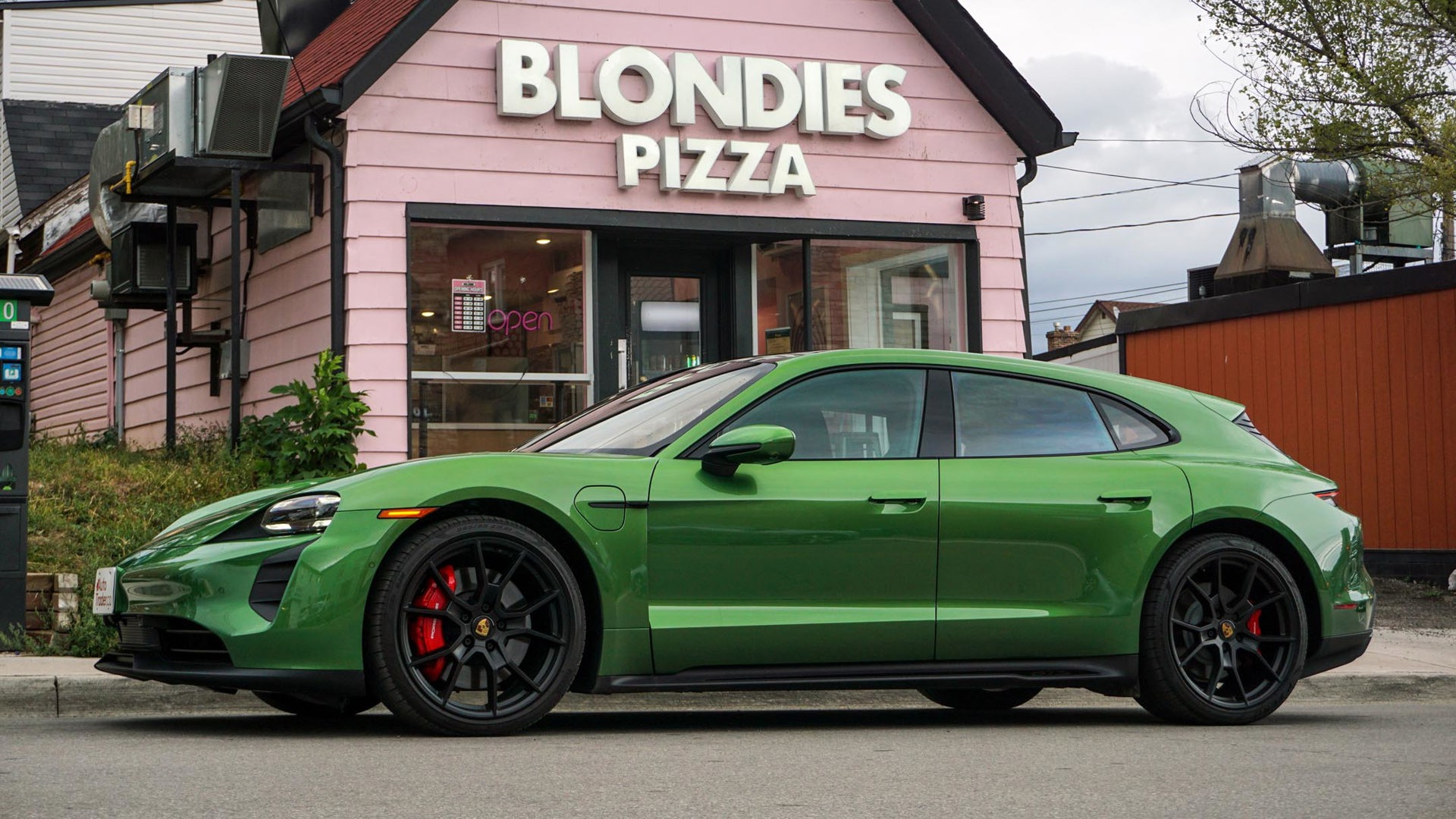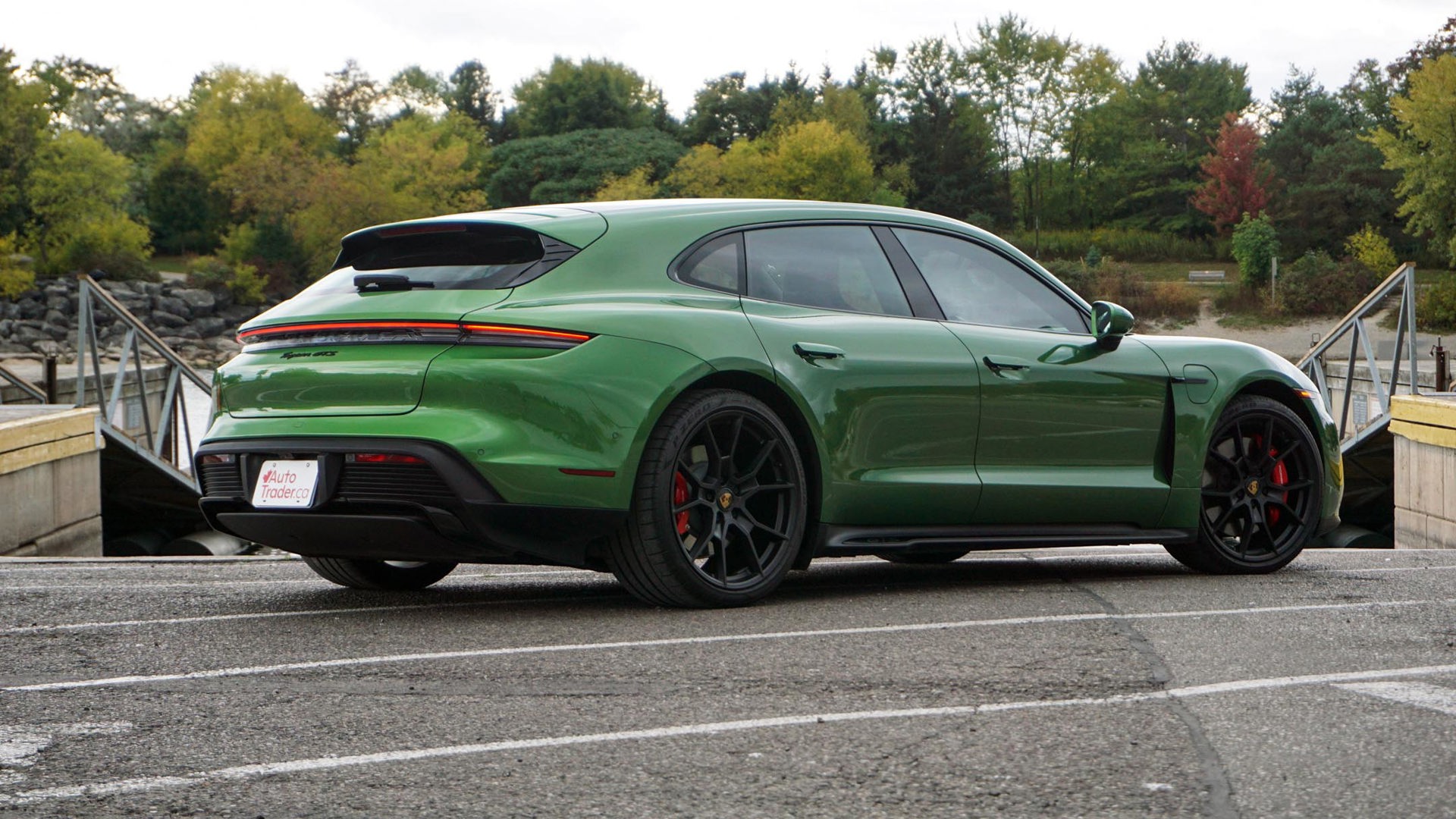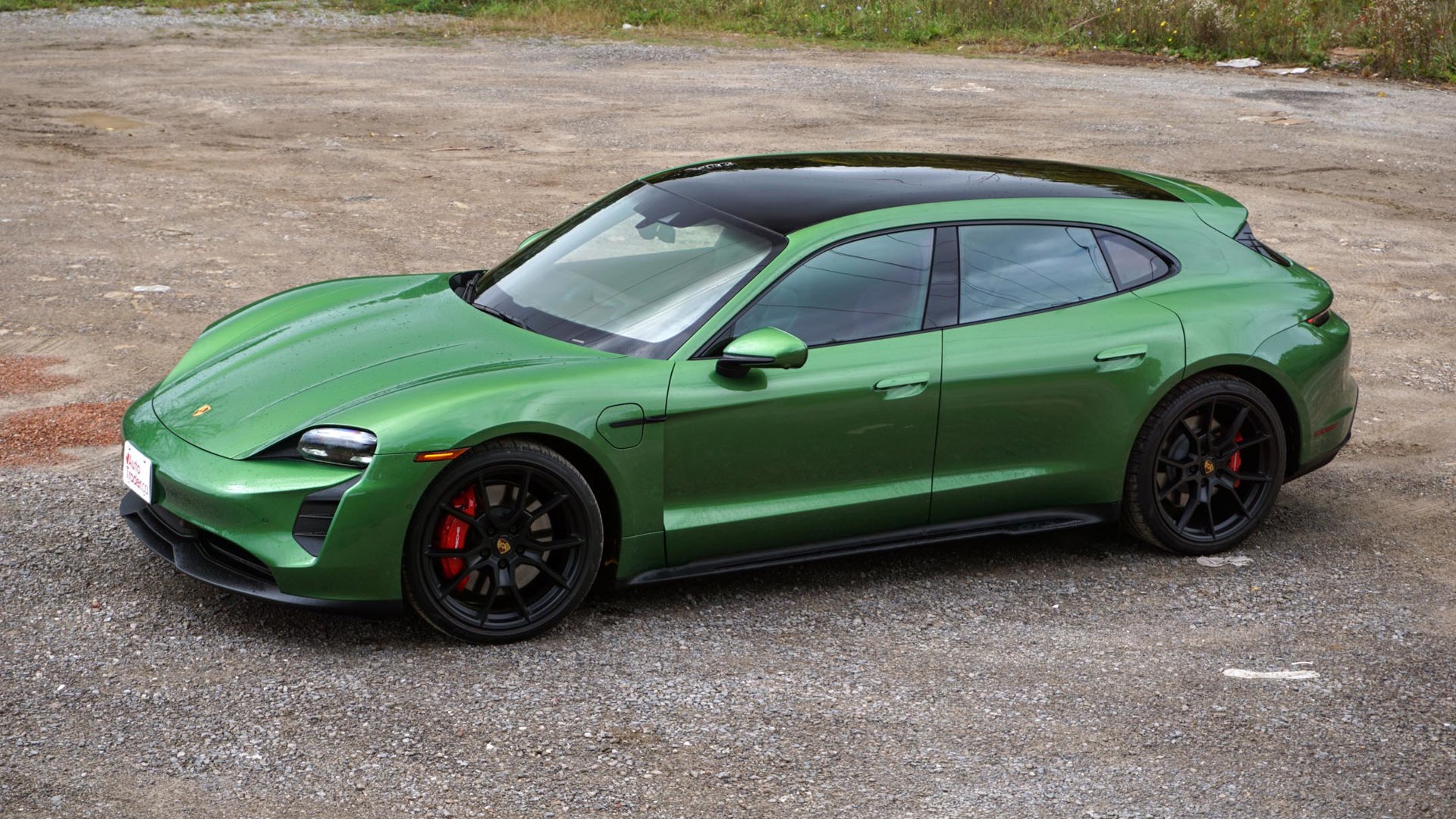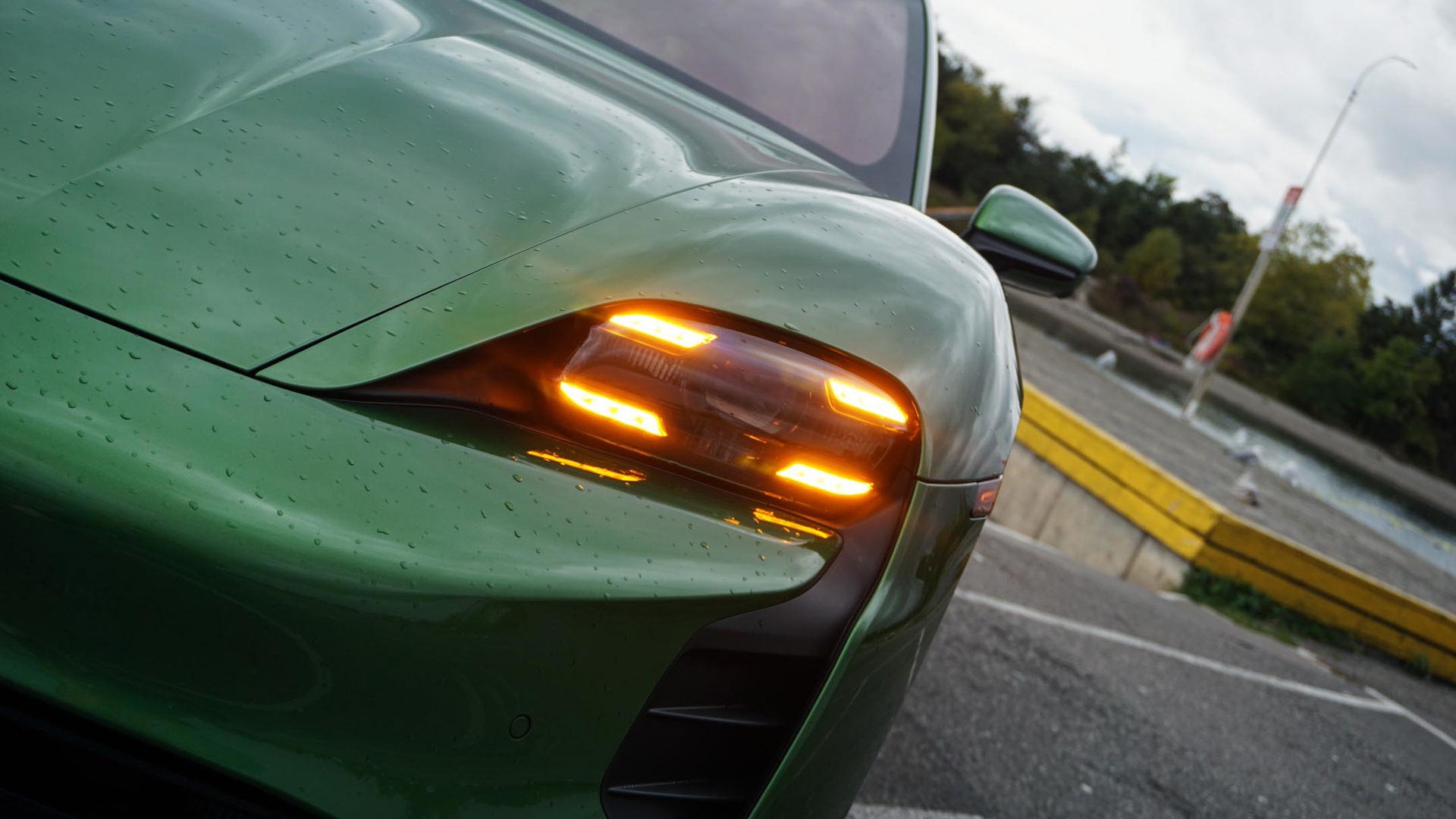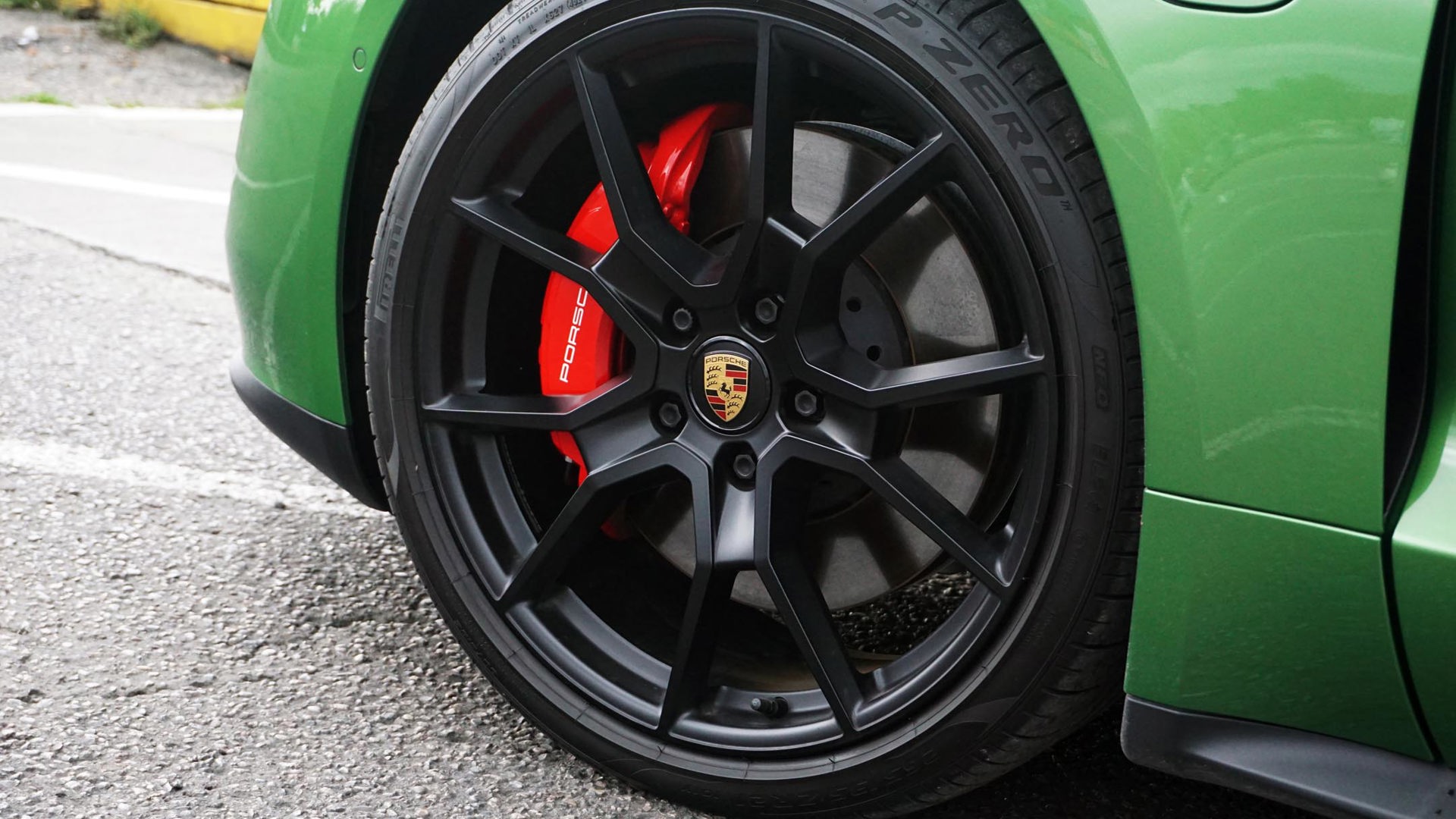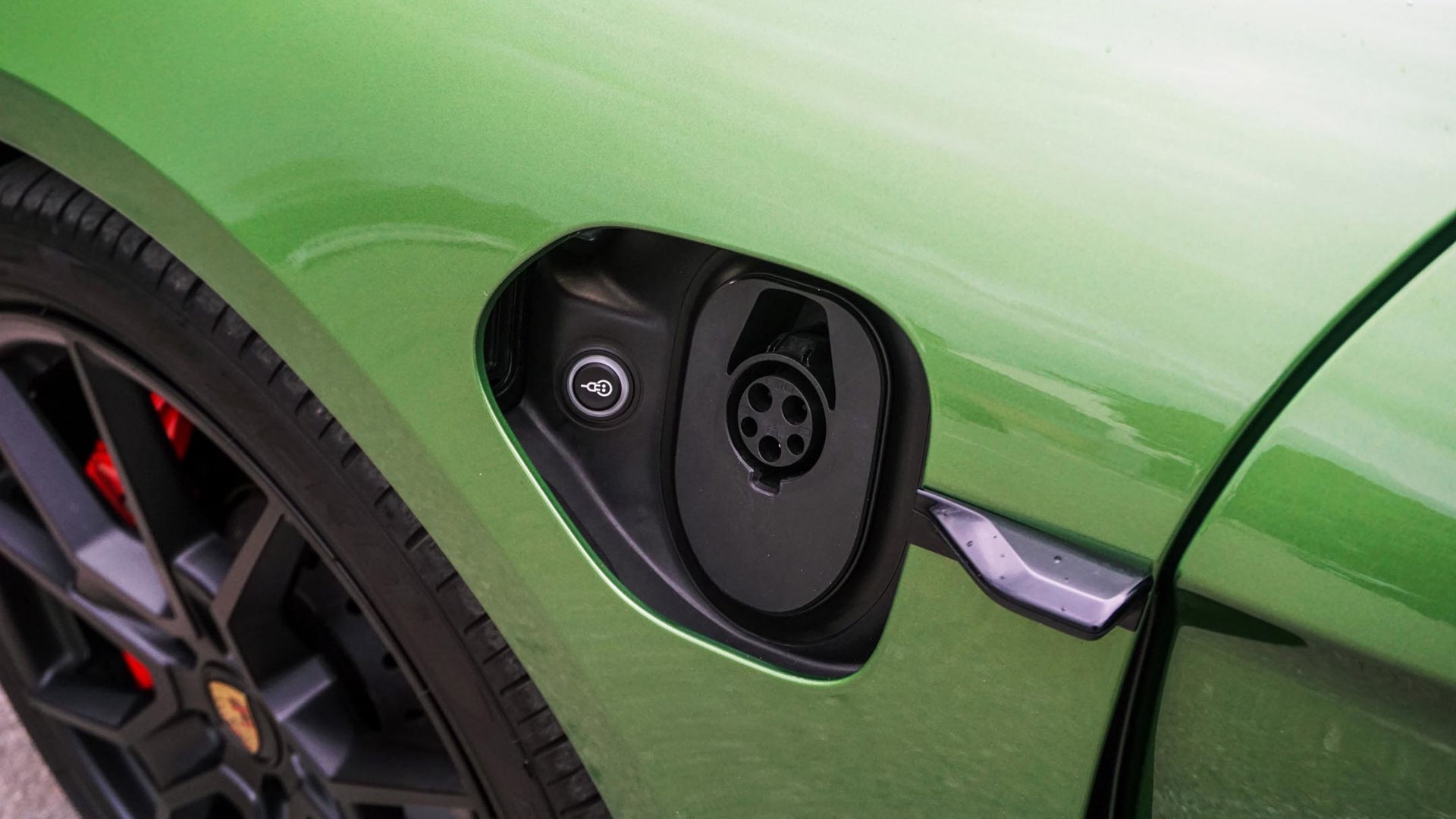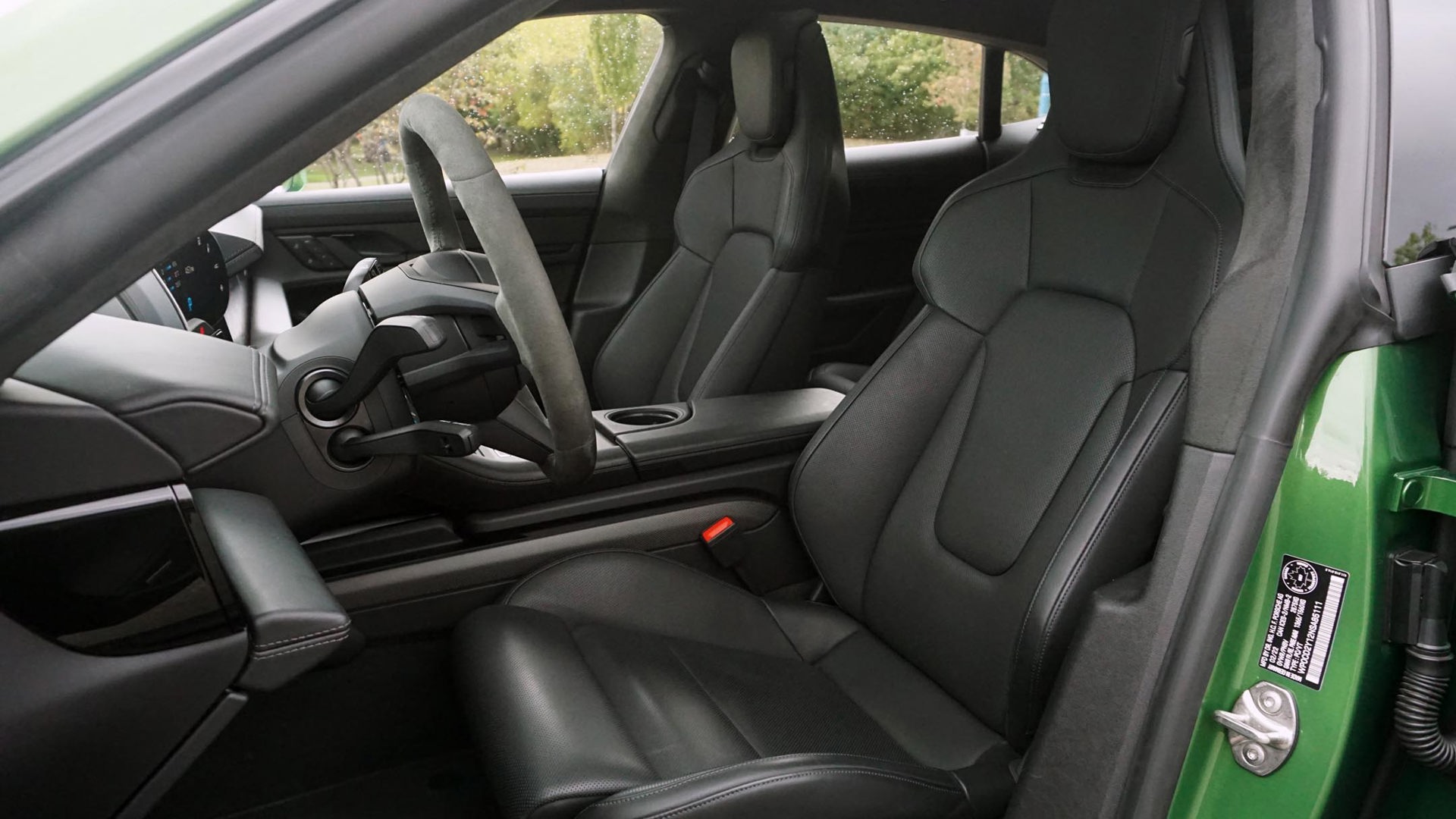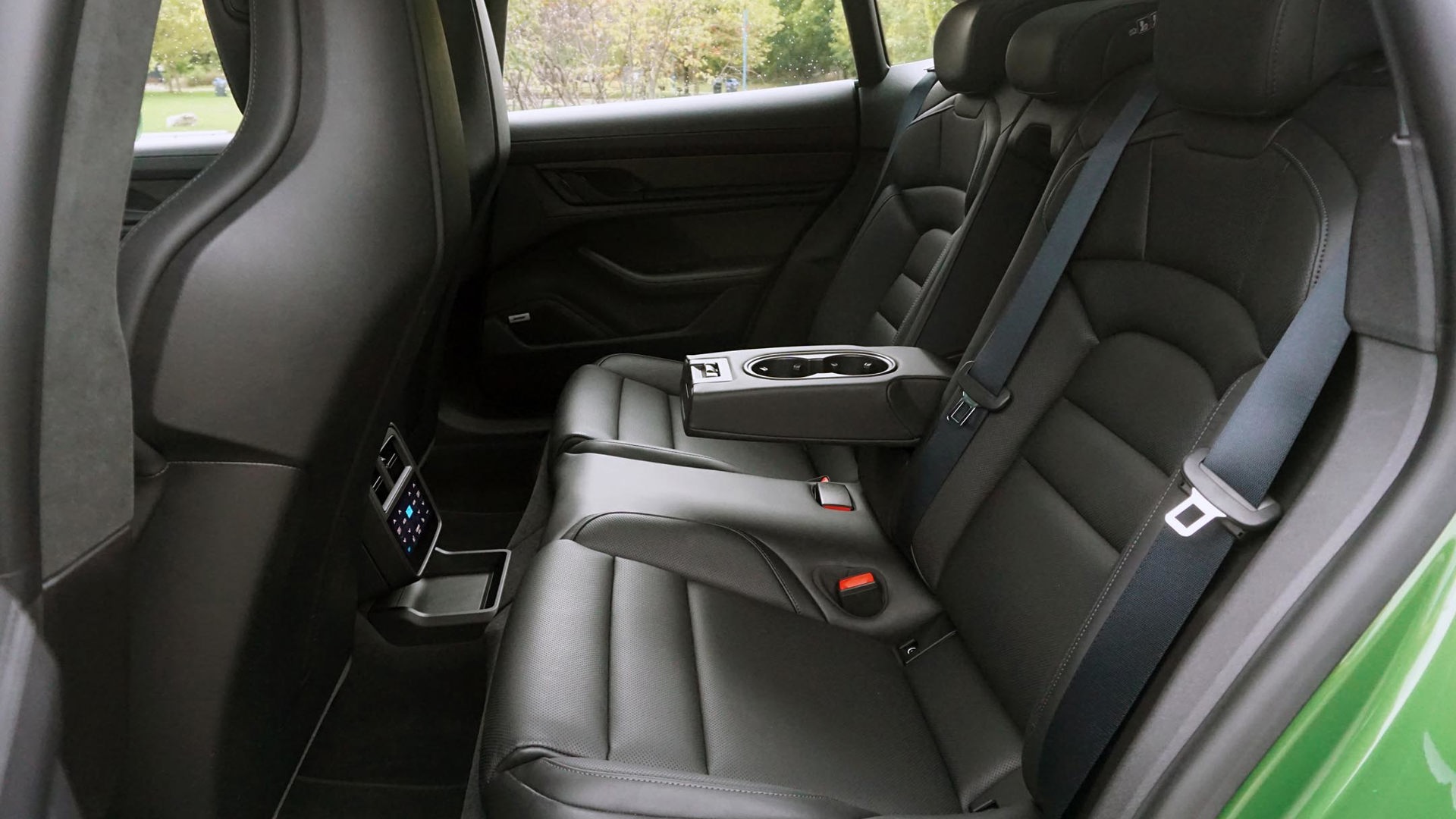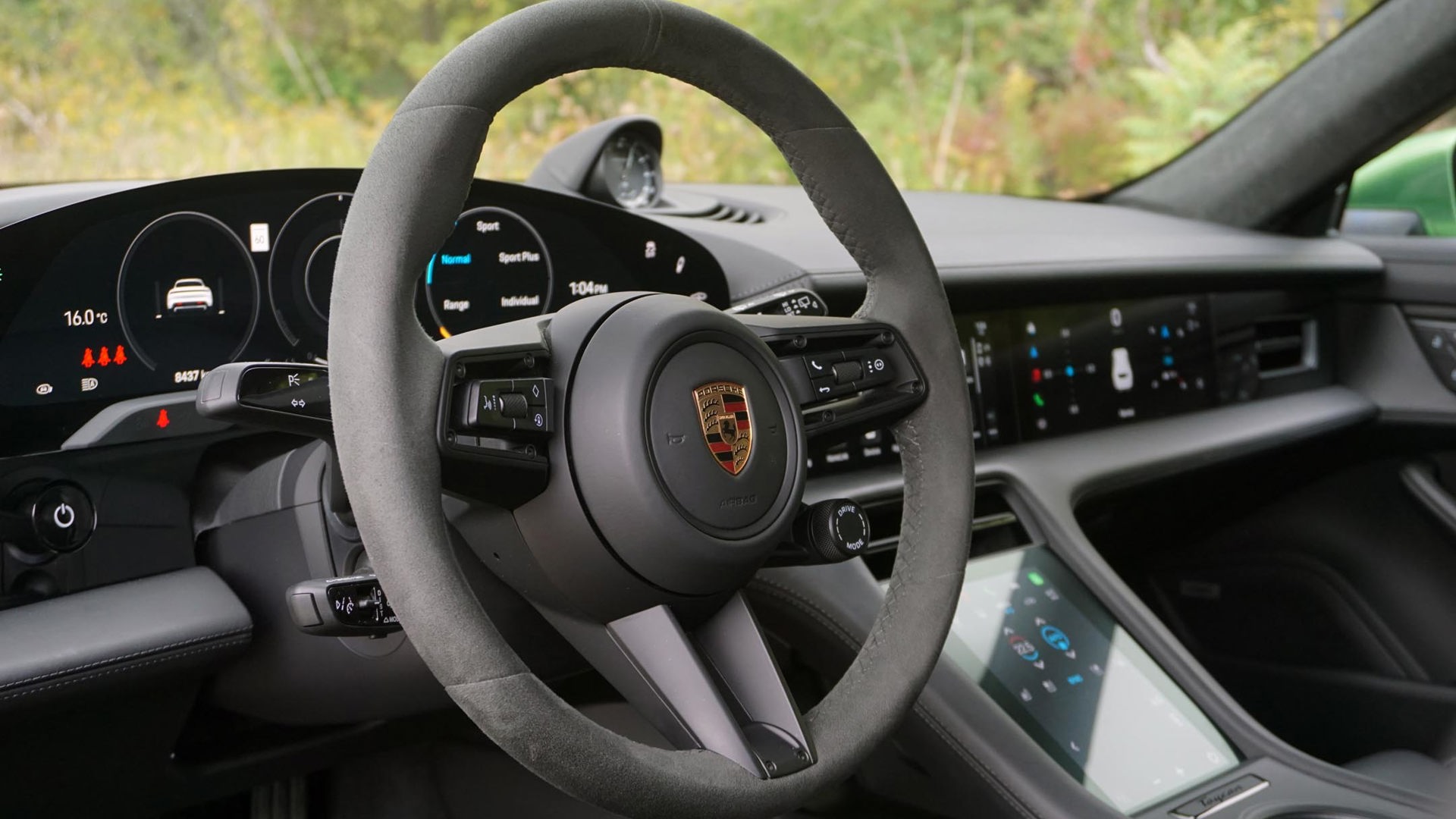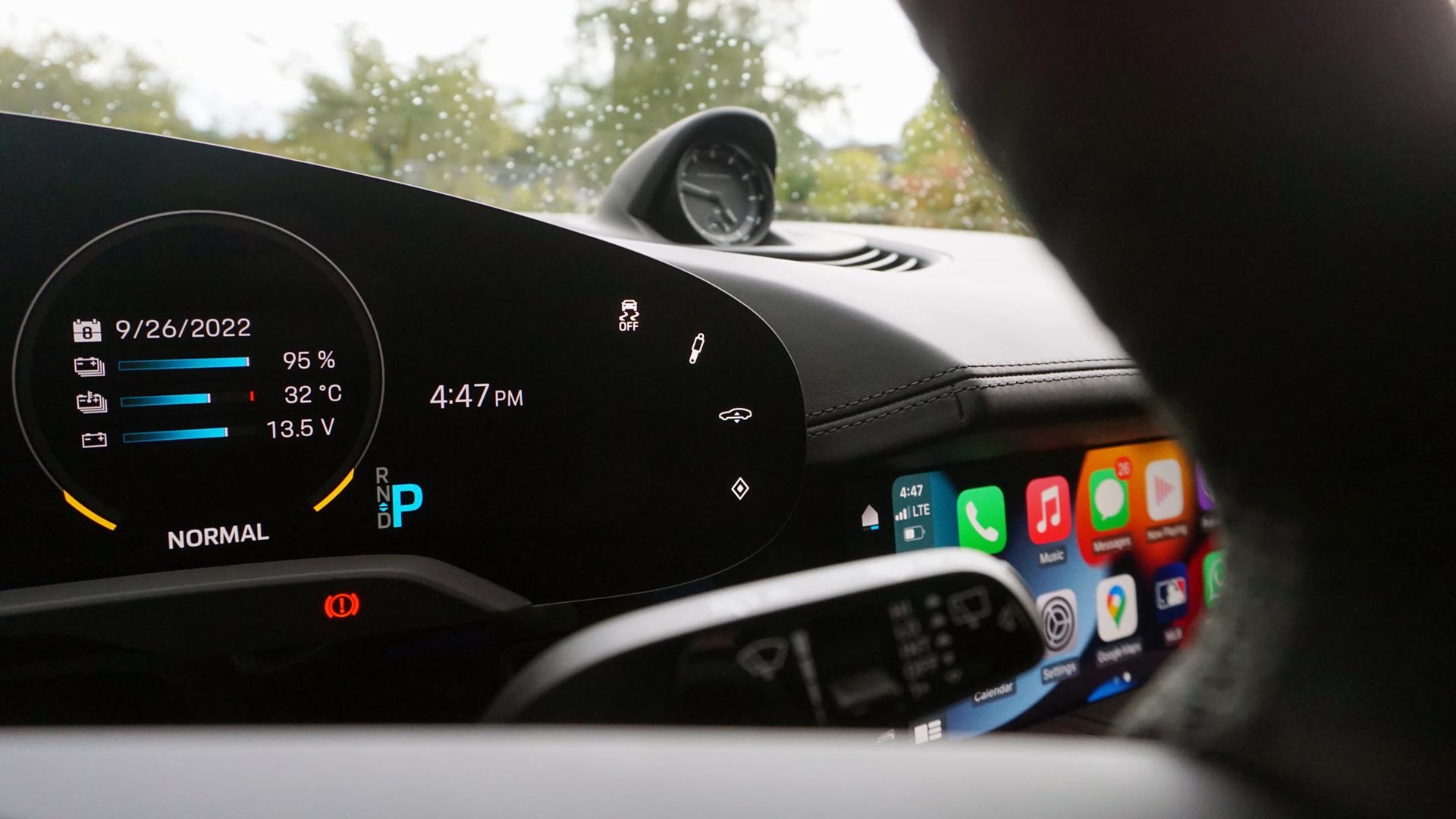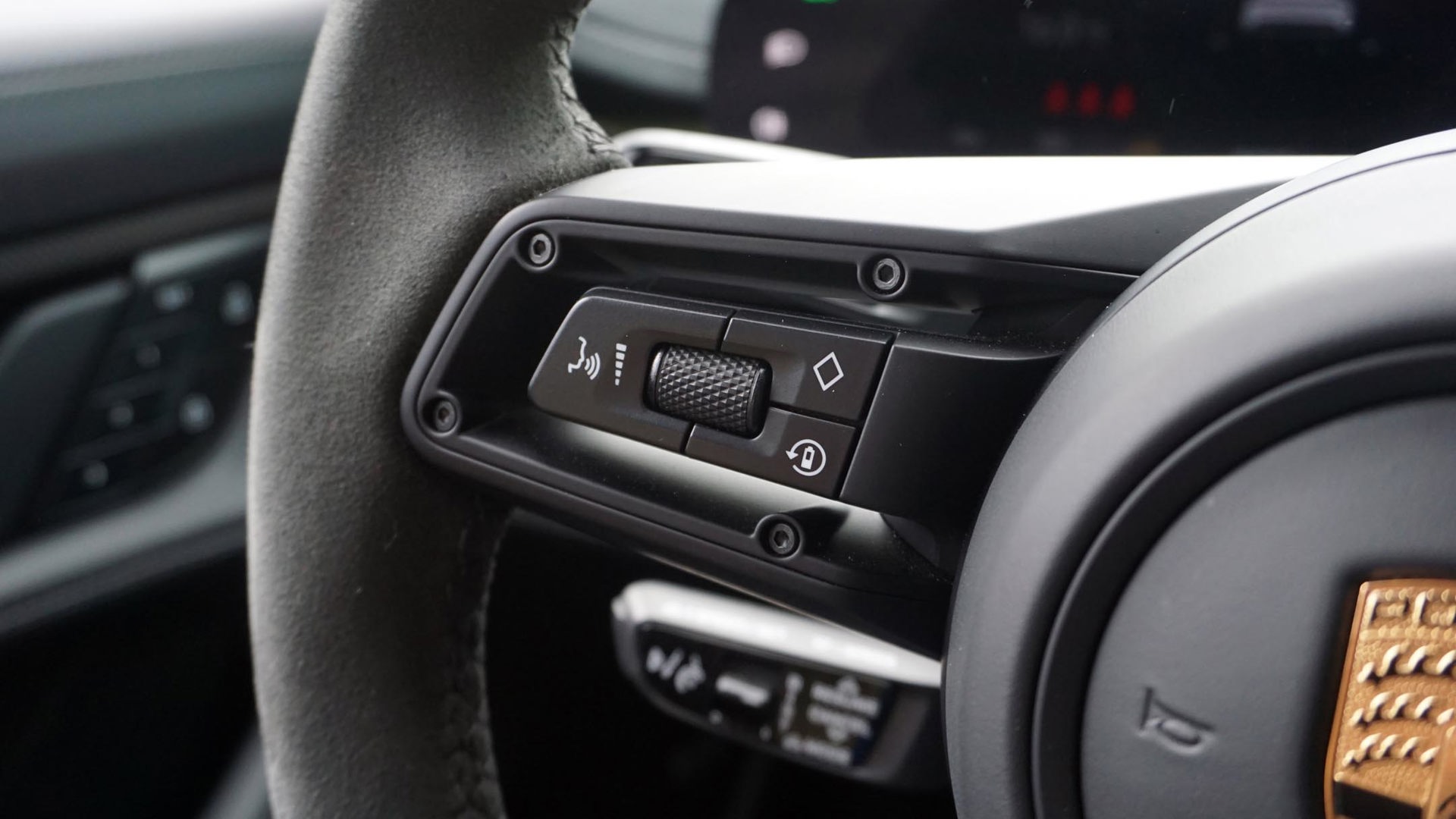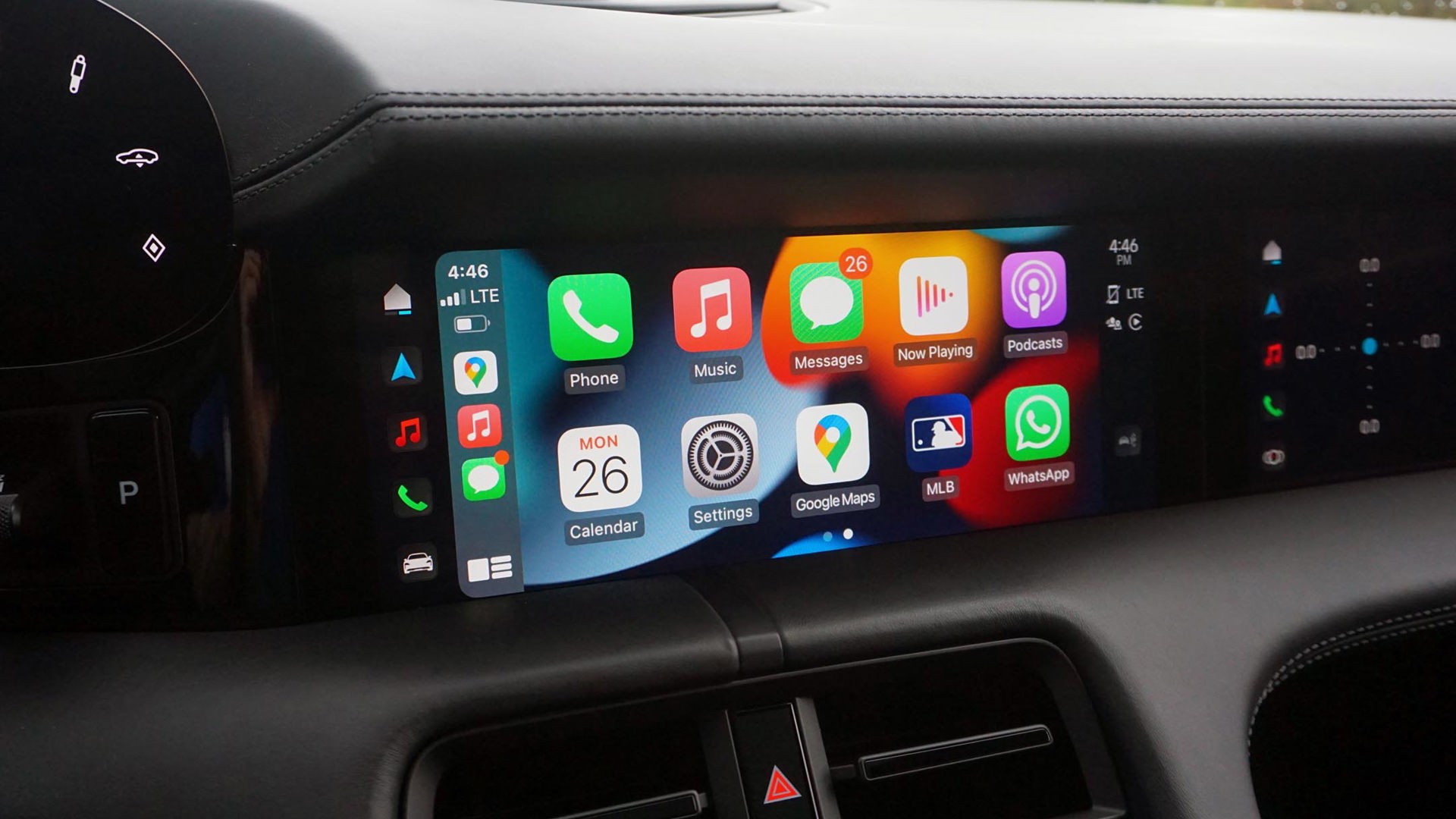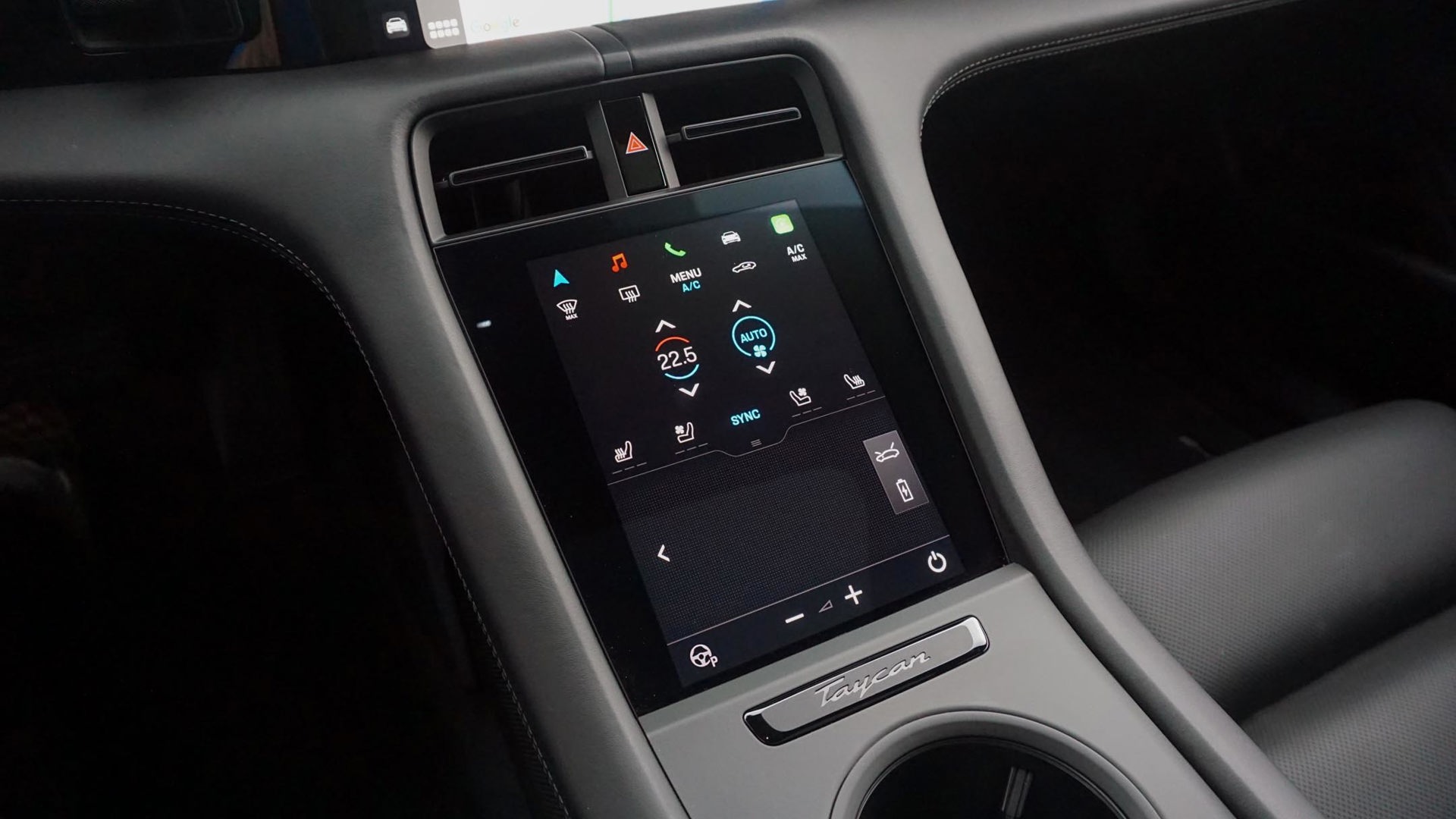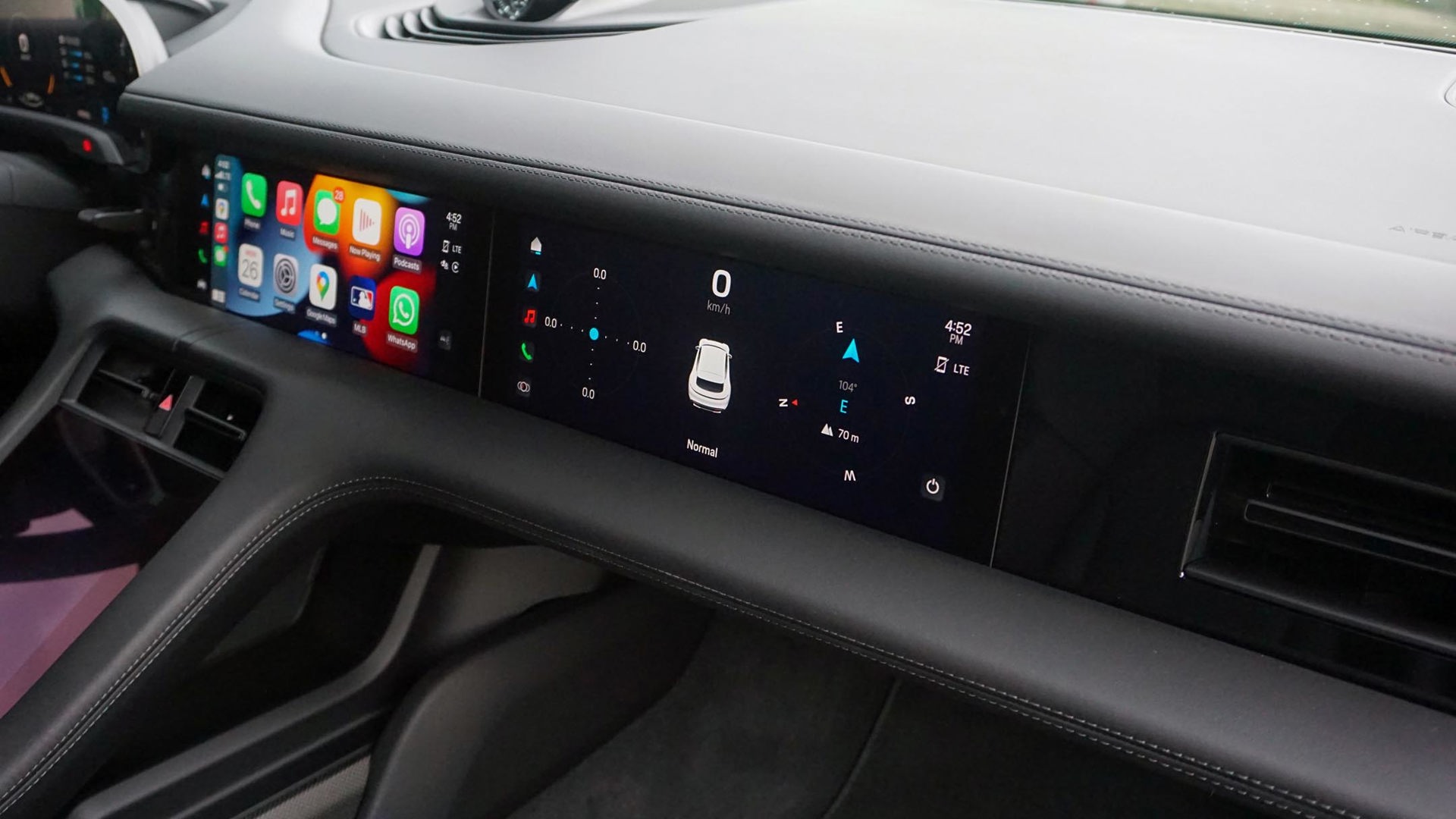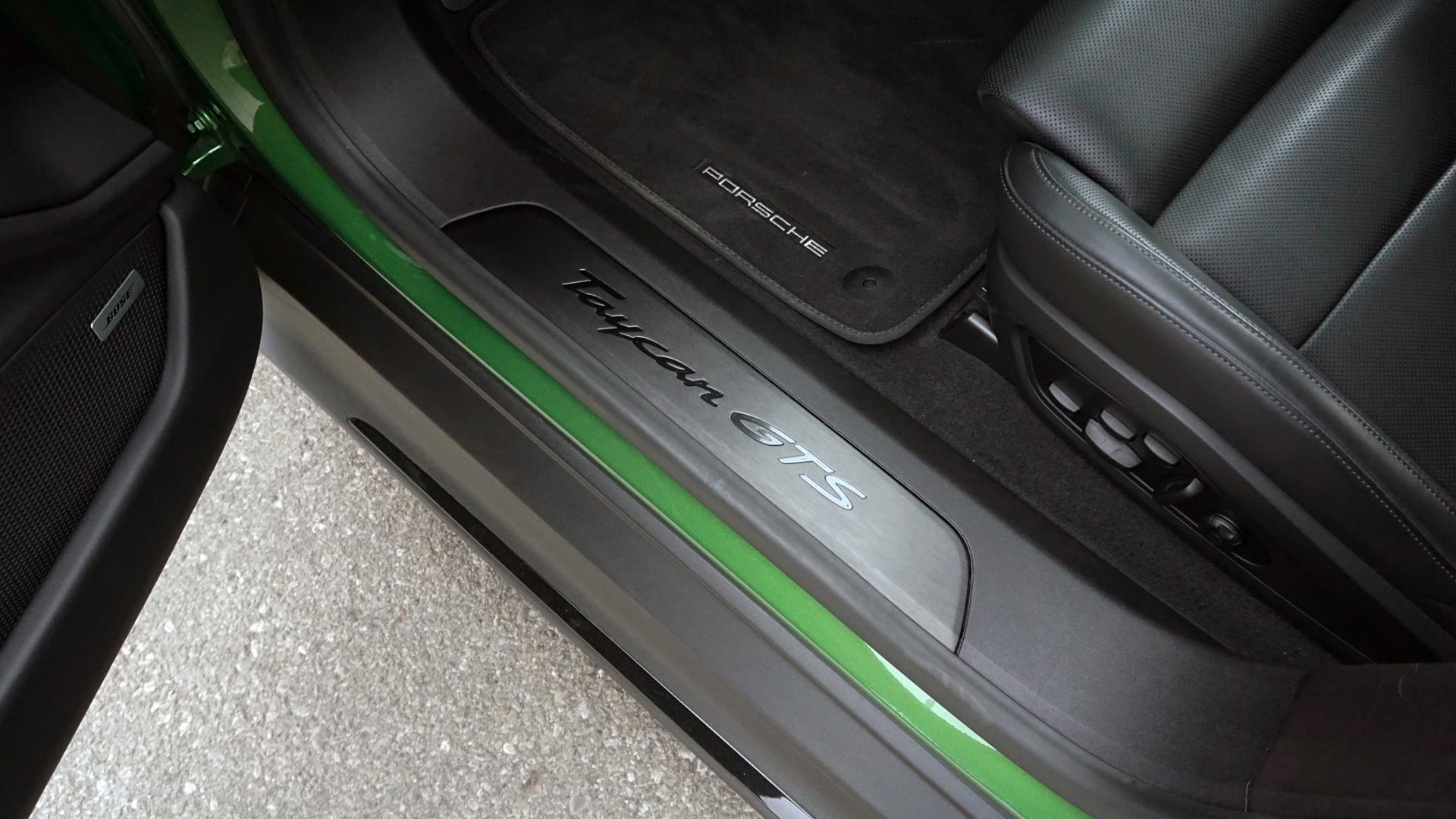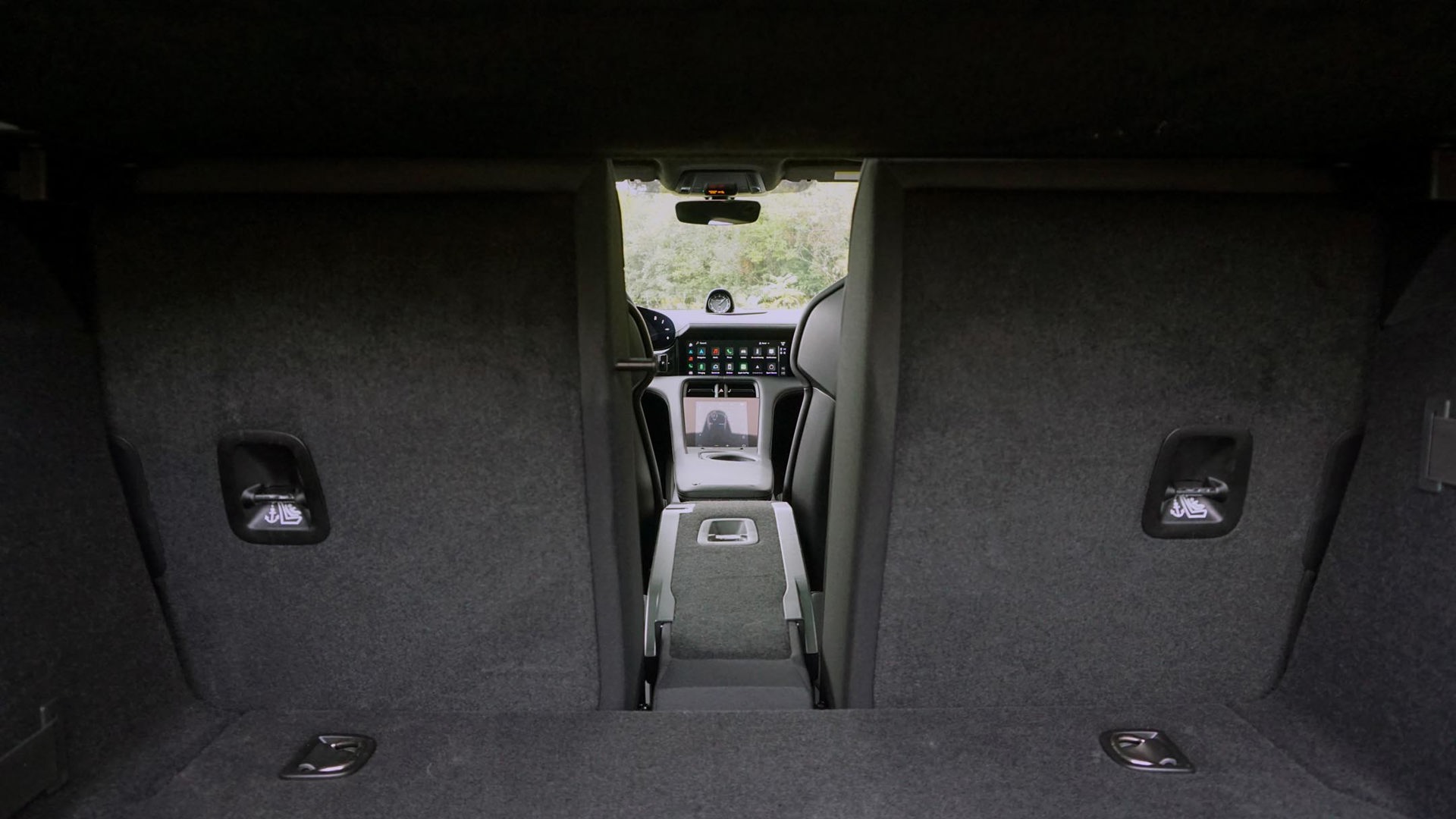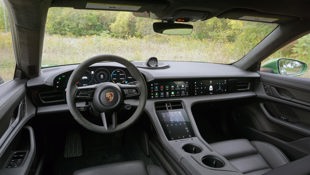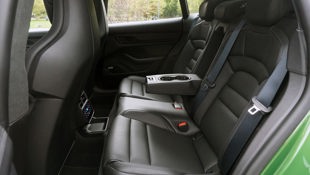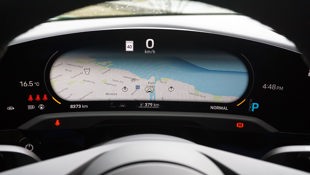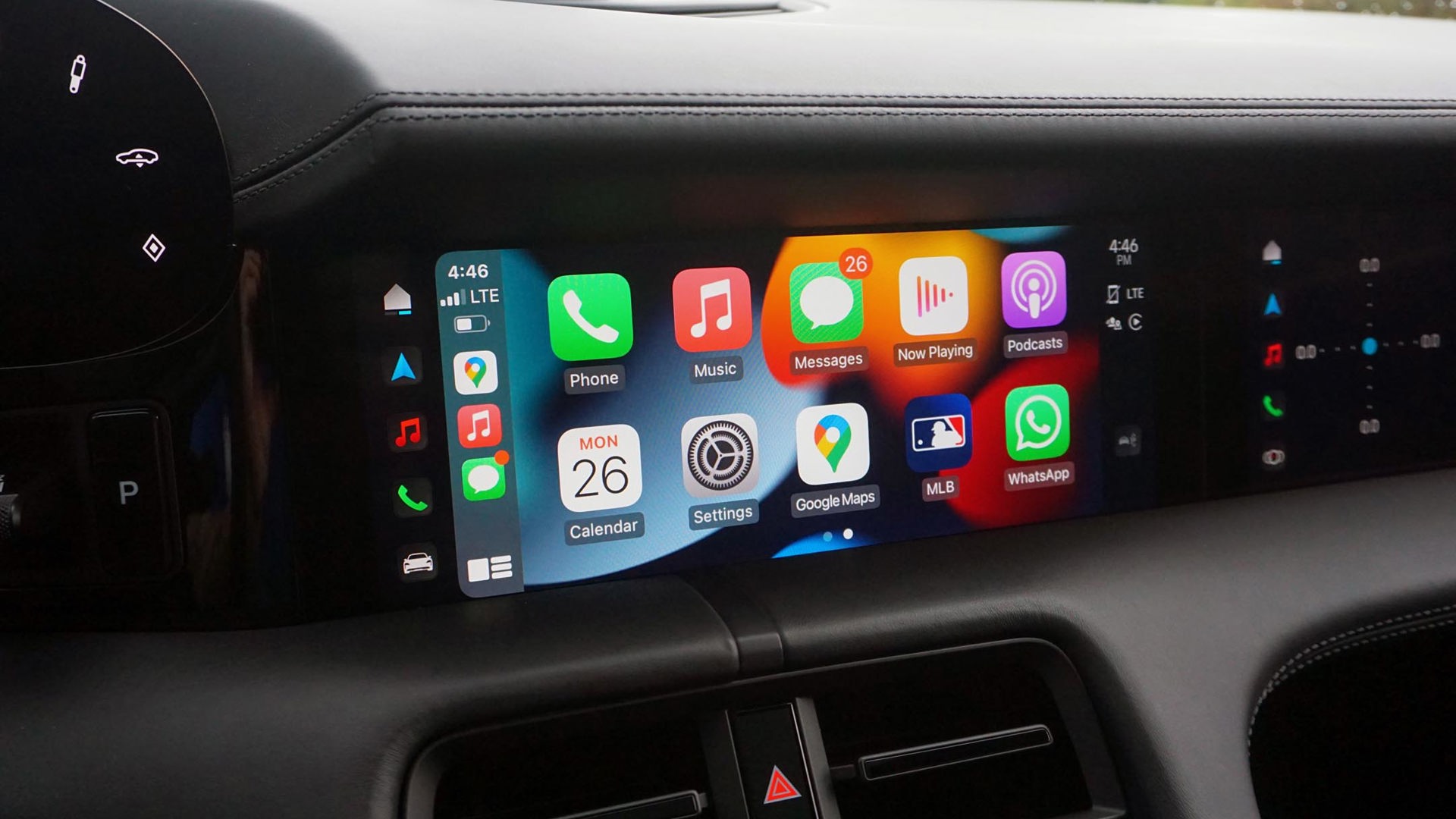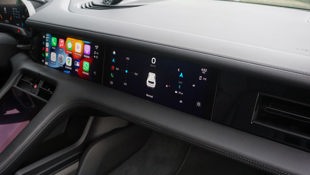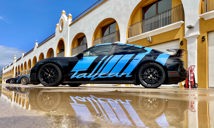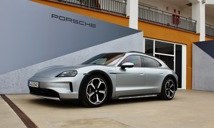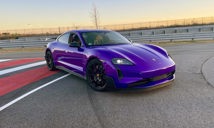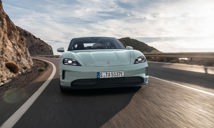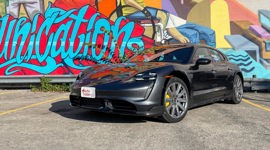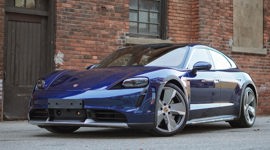 AutoTrader SCORE
AutoTrader SCORE
-
STYLING10/10
-
Safety8/10
-
PRACTICALITY8/10
-
USER-FRIENDLINESS9/10
-
FEATURES9/10
-
POWER10/10
-
COMFORT9/10
-
DRIVING FEEL10/10
-
FUEL ECONOMY9/10
-
VALUE7/10
The 2022 Porsche Taycan GTS Sport Turismo is a car nobody really asked for, and one only this brand could pull off.
For starters, it’s a wagon. It’s got space for stuff, a 40/20/40 split-folding bench in the back, and four proper seats. It can just as easily haul a load to Goodwill as it can head to the slopes for a weekend of skiing.
But it can also take off from a standing start and hit 100 km/h in less than four seconds, or tackle a winding road with familiar Porsche poise. And all the while, it won’t burn a drop of gas. As an exclamation point on the possibilities of electrification, this Taycan is truly something special.
Fuel Economy: 9/10
That’s in spite of so-so range and barely-there regenerative braking – two areas the Taycan comes up a little short as far as electric vehicles (EVs) are concerned. In terms of the former, range estimates hovered around 400 km during this week-long test. That’s more than enough to get by, but probably not quite enough to confidently make the trip from Vancouver to Kelowna, B.C., without pausing to charge along the way.
Fortunately, those pit stops shouldn’t take long, with DC fast-charging capabilities that can boost the 93.4-kWh battery pack from five to 80 per cent in a claimed 23 minutes. More impressive still was the 37 minutes it took during testing to charge the battery from 59 to 99 per cent. Considering the process slows considerably beyond 80 per cent for this or any other EV, that time spent hooked up to a public station was more than reasonable.
User-Friendliness: 9/10
Complaints about the regen. braking could be considered more about preference than absolute necessity, but it ultimately it comes down to the way the Taycan functions as an EV. Either way, activating (or deactivating) the feature is as simple as hitting a plainly labelled button on the steering wheel, or programming it to happen automatically through the head unit depending on drive mode.
This being the Taycan GTS Sport Turismo – which technically makes it the Taycan Gran Turismo Sport Sport Turismo, for those wondering – means those selectable programs include both sport and sport plus modes, both of which can be called up by spinning a small dial on the steering wheel. Both enable launch control, which can be activated by simply applying both brake and accelerator pedals simultaneously and waiting for the prompt in the instrument display.
The previous iteration of the Taycan’s infotainment system was accused of being overwhelming to operate, but the new version found here has been streamlined considerably. There’s still a slight learning curve compared to the average interface, but it looks and feels far simpler than before. The system also now supports Android Auto connectivity in addition to Apple CarPlay, both of which are wireless.
Features: 9/10
There’s a whole lot of digital real estate inside the Porsche Taycan. There’s that display in front of the driver that can be reconfigured to show a full map view, plus a traditional touchscreen for the infotainment system, a separate touch panel on the centre console, and another in the back for rear-seat climate control. On top of all that, this tester featured an optional touchscreen on the passenger side of the dash ($1,280).
That’s something of a running theme here, with lots of what can be seen – and more that can’t – available optionally rather than coming standard. Heated seats front and rear ($600), four-zone climate control ($1,120), and rear-axle steering with so-called “power steering plus” ($2,170) are just some of the features added to this tester.
Driving Feel: 10/10
This being a GTS model makes it the kind of crescendo of comfort and performance. So in spite of those optionally available features, plenty of others are included in the asking price. Standing out among them is the adaptive air suspension system that’s been tuned specifically for this application, plus the brand’s signature electronic damping control system that minimizes body roll.
With that enhanced steering setup along for the ride, it’s not just that this tester felt like a smaller car than the Taycan’s size would suggest – it’s that it felt lighter, too. Despite tipping the scales at a whopping 2,310 kg (5,093 lb), or more than the average half-ton truck, there’s a level of car control through corners that’s crisp and precise. It masterfully disguises its bulk and behaves like a proper sports car should, electric or otherwise.
It’s like the best sim racing setup money can buy, except it doesn’t feel as neutered and disconnected as sitting in front of a computer screen. There’s precision and polish, but it combines with raw realism. There’s a sort of sensory deprivation with the vast majority of EVs, and that’s what makes this Taycan so refreshing – because it’s the opposite. But then it’s just as easy as a Nissan Leaf to drive with an eye on efficiency.
Power: 10/10
The 509 hp and 627 lb-ft of torque generated by the twin electric motors seemingly flies in the face of efficiency, but that’s what makes electrification so fascinating. Without the mechanical fury of pistons pumping and camshafts spinning, it’s far easier to drive the Taycan in a relaxed manner. Incidentally, that output jumps to 590 hp during launch control, which is more than a Porsche 911 Turbo generates, and it’s what helps this EV sprint from zero to 100 km/h in just 3.7 seconds.
Styling: 10/10
Going that fast in such a short period of time is made all the more enjoyable with that knowledge that it’s being done in a breathtakingly beautiful jellybean on wheels. Sure, the Taycan sedan looks good, but this wagon is stunning. The curves that climb from the neatly recessed headlights to the rear haunches were seemingly made for this hatchback bodystyle, while this tester’s coat of Mamba Green Metallic paint ($910) sets the entire look off against the 21-inch split spoke wheels ($3,330). Meanwhile, GTS exterior touches are subtle, including rocker extensions finished with those three special letters, and some blacked-out badging and accents.
Practicality: 8/10
Performance may be this Taycan’s priority – it is a Porsche, after all – but that’s far from its raison d’être. The cabin, while not the easiest to climb in and out of, is surprisingly spacious both front and back, while the rear seats feature a 40/20/40 split-fold. That means the centre section can be stowed to accommodate long items like skis while leaving the two outboard seats for passengers. At 405 L, cargo room behind those seats is just so-so, but the space swells to 1,171 L with them folded.
Comfort: 9/10
With standard adaptive air suspension underpinning this GTS version of the Taycan, there’s an underlying comfort to the ride quality in spite of its sporting intentions. Yes, the rebound strokes are short, but they aren’t enough to rattle fillings over rough surfaces. Likewise, the seats, while featuring inherently stiff structures, are perfectly cozy for long stretches inside. It’ll be time to recharge the battery before the comfort limits are ever tested – particularly with all the ways in which the front sport seats can be adjusted.
Safety: 8/10
While lane-keeping assistance and parking sensors front and rear are standard – as is the back-up camera that’s mandatory for all new passenger vehicles sold in Canada – extras like adaptive cruise control or the self-parking system add to the asking price significantly. The former is a $2,330 upgrade, while the latter costs a further $2,920. Even blind-spot monitoring is available optionally, either as a stand-alone feature or as part of a couple different packages.
Value: 7/10
Alas, additional costs are part of the Porsche experience. And so it goes with this Taycan GTS Sport Turismo, which starts at $156,200 before taxes and extras (but including a non-negotiable freight charge of $1,500). This tester was fitted with a further $33,010 in options, pushing the pre-tax price to $189,210.
That’s certainly not inexpensive, but then there really isn’t anything else like this Porsche to pick from. Sure, there’s the Taycan GTS sedan that starts at $153,600; and there’s the so-called Cross Turismo version that adds some cladding for a slightly more rugged look, with 4S, Turbo, and Turbo S trims to pick from. But this truly is a segment of one.
The Verdict
Of all the 2022 Porsche Taycan GTS Sport Turismo does well, among its finest qualities is the fact that it never feels too hardcore or out of place doing regular stuff. Sure, it can blast to highway speeds in a hurry and make equally quick work of ribbons of backroads. But it’s cozy and comfortable; there’s all the features you’d find in a Mercedes-Benz C-Class; and since it’s electric, there’s no hefty fuel bill to bother with.
Taking into account all the other Taycan models on the market, this GTS wagon is probably the best one yet. Yes, it feels a little incomplete as an EV in terms of range and regenerative braking; but as a performance vehicle it proves electrification doesn’t have to ruin the fun. Now consider that it’s practical, too, and the Taycan GTS Sport Turismo might be one of the best new Porsches you can buy.
| Engine Displacement | 380 kW combined |
|---|---|
| Engine Cylinders | Dual electric motors |
| Peak Horsepower | 509 hp (590 hp w/overboost) |
| Peak Torque | 627 lb-ft |
| Fuel Economy | 2.9 / 2.9 / 2.9 Le/100 km, 26.1 / 26.2 / 26.2 kWh/100 km cty/hwy/cmb, 375 km est. range |
| Cargo Space | 405 / 1,171 L seats up/down |
| Model Tested | 2022 Porsche Taycan GTS Sport Turismo |
| Base Price | $154,700 |
| A/C Tax | $100 |
| Destination Fee | $1,500 |
| Price as Tested | $189,310 |
|
Optional Equipment
$33,010 – Premium Package, $5,680; Porsche Dynamic Chassis Control Sport, $4,090; 21-inch RS Spyder Wheels, $3,330; Remote Park Assist, $2,920; Adaptive Cruise Control, $2,330; Rear Axle Steering w/Power Steering Plus, $2,170; Fixed Panoramic Glass Roof, $1,690; Bose Surround Sound System, $1,360; Passenger Display, $1,280; Porsche Design Subsecond Clock, $1,270; Carbon Fibre Interior Trim, $1,150; Advanced Four-Zone Climate Control, $1,130; Front Seat Ventilation, $970; Mamba Green Metallic paint, $910; Power Charge Port Cover, $720; Front and Rear Seat Heat, $600; 2+1 Rear Seat Configuration, $550; Onboard DC Charger, $520 Porsche Intelligent Range Manager, $340
|
|





